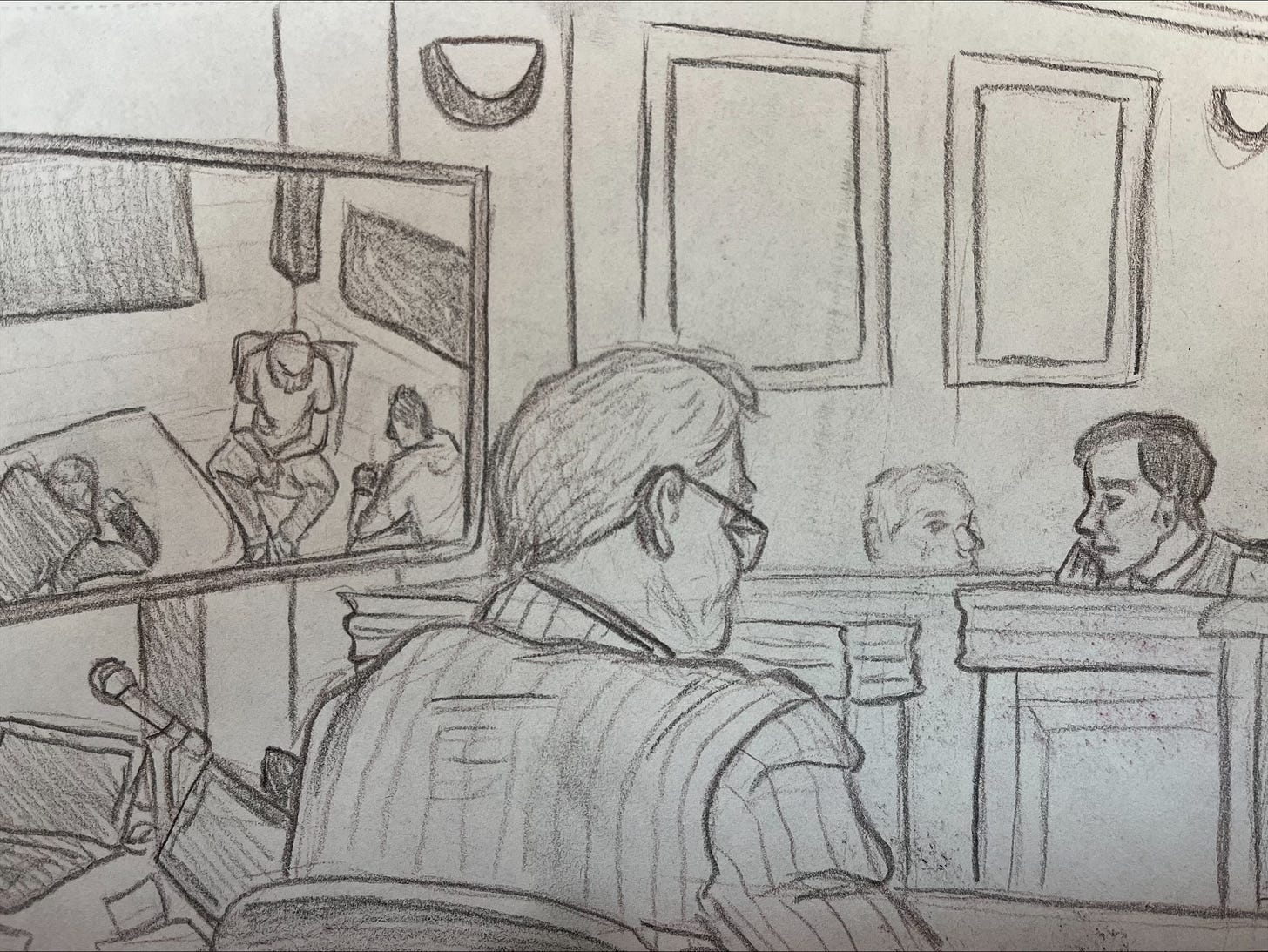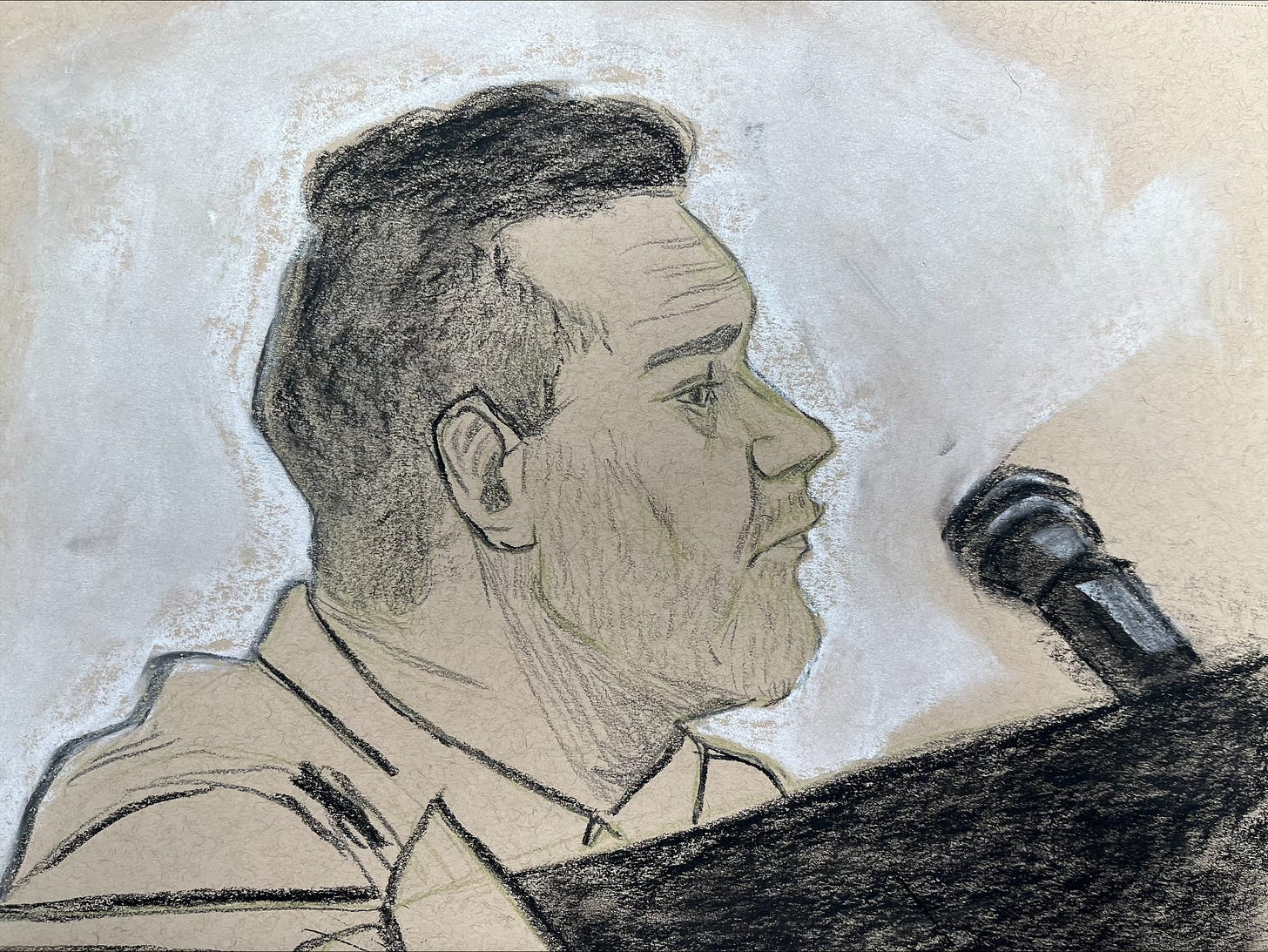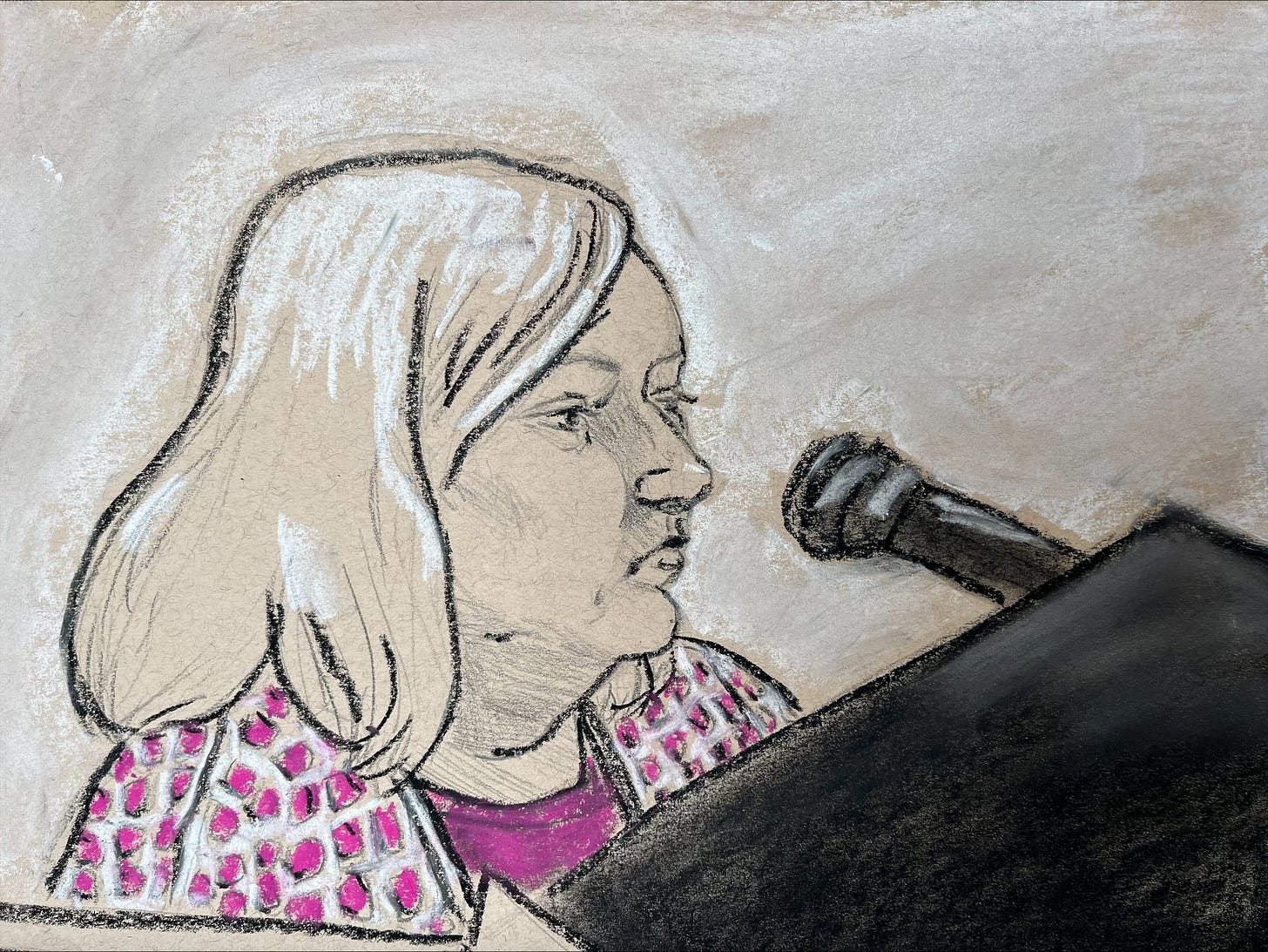Defense emphasizes lack of physical evidence as testimony wraps
Closing arguments scheduled for Monday morning

The investigation into Crystal Rogers’ disappearance involved hundreds of local, state and federal agents conducting numerous searches throughout Nelson County over the course of more than eight years that never turned up a single piece of physical forensic evidence that tied Brooks Houck or Joey Lawson to her presumed murder and disposal.
That left the prosecution with witnesses who related recollections of statements and events that were years old by the time they told detectives, and some of those witness statements were made under extreme pressure in cramped, unfriendly interrogation rooms.
That seemed to be the main theme defense attorneys tried to drive home to the jury as they wrapped up the final day of testimony. Closing arguments in the case are scheduled for Monday morning and the jury should start deliberations that afternoon.
The defense called two expert witnesses to testify:
Jeffery Neuschatz, Ph.D.: A cognitive psychologist who specializes in memory and whose research focuses on false and coerced confessions.
Denver Butler: A former Louisville Metro homicide detective and supervisor who also served as a state representative from southern Louisville and two years as State Commissioner of Juvenile Justice. He founded Clemency Investigations, a non-profit that analyzes cases of convicted persons who pleaded innocent at trial.
Jury hears ‘coercive’ police interrogations
Dr. Neuschatz analyzed Kentucky State Police interrogations of two witnesses who testified for the prosecution.
He told the jury that police tactics can influence the memories of witnesses during an interview.
“Memory doesn’t work like a VCR,” he said.
Rather, memories are more like snippets the brain recalls that are then filled in and pieced together.
“We fill in gaps based on what we know happens in the world,” he said. “Sometimes it’s accurate, sometimes it’s not.”
He briefly described the Reid Technique of interrogations to the jury before illustrating his criticisms of the specific interviews through video clips. He said he found the interrogations “highly coercive” through tactics such as promising the subjects leniency, threatening a woman with the possibility of losing custody of her son, and not accepting their answers because they did not fit the narrative they were seeking, which forced the subjects to alter their statements in hopes of pleasing their interrogators.
Charlie Girdley interrogation
Charlie Girdley testified for the prosecution in this trial as well as Steve Lawson’s. He claimed Steve approached him on behalf of Houck to “get rid” of Rogers in his trial. In this trial, he tied Joey to Rogers’ car the night of July 3, 2015, and comments Joey allegedly said to him.
Highlights of Neuschatz’s testimony:
Neuschatz said he identified 314 coercive tactics during Girdley’s four-hour interview/interrogation.
Some examples of coercive statements by police, according to Neuschatz’s testimony:
“This is the most pivotal moment in your life.”
They told him he could walk out of the interview or “go to prison for the rest of your life.”
Girdley’s story evolves throughout the interview as the detectives insist he knows more than he is telling them.
Girdley testified he was up for four or five days on a meth binge when police picked him up on a warrant for absconding for his parole and took him to the interrogation.
Girdley was suspected of complicity in Rogers’ disappearance in the early stage of the investigation before attention shifted to the Lawsons.
While the interrogation lasted a little over four hours, Girdley was detained for about 10 hours.
Heather Snellen interrogation
Heather Snellen, Joey’s former girlfriend, was interviewed by police during the investigation and did not have much to offer the first time. Detectives told her if she thought of anything that might be pertinent, to contact them. She followed up with them some time later, only to find herself in a KSP interrogation room facing two detectives who insisted she knew more than she was saying. Snellen was a recovering addict seeking to maintain custody of her son.
Highlights of Neuschatz’s testimony:
Neuschatz said he identified 350 coercive tactics during Snellen’s four-hour interview/interrogation.
Some examples of coercive statements by police, according to Neuschatz’s testimony:
“We don’t care how involved you are in this thing,” they told her.
“We all make mistakes in life. We don’t want to prosecute you.”
“Help yourself … I know you know more.”
At one point Snellen stood up, gathered her things and said she wanted to leave. One detective physically blocked her progress as she tried to navigate to the doorway as he attempted to convince her to stay.
At one point the interrogation had to be halted as Snellen suffered an apparent panic attack.
Prosecution: Interrogations are not pleasant
Under cross examination by Special Prosecutor Shane Young, Neuschatz acknowledged that “The majority of interrogations are not pleasant.”
He also agreed that “Many coerced statements are true.”
Young pointed out that Girdley had an extensive history with police and the justice system, which could make more aggressive techniques necessary. Young said he only learned recently that Girdley had been up for five days, which he said made the situation “a little iffy.”

Defense ends with emphasis on lack of physical evidence
Houck’s attorney, Brian Butler, led Denver Butler (no relation), the former Louisville Metro homicide detective, through the many searches as part of the investigation, which included:
Three searches of the Houck family farm in 2015
A 2015 dive team search of Melody Lake
Houck’s home and truck
The police cruiser of Houck’s brother, Nick
The white Buick of Houck’s grandmother, Anna Whitesides
Whitesides’ home in Cox’s Creek
An August 2020 three-day search of the Houck farm involving up to 100 personnel
A 2021 search in Woodlawn subdivision where FBI excavated a driveway and recovered a woman’s underwear and clothing
An October 2022 search of the Houck farm where over 30 items were collected for forensic testing
A December 2023 search of Thompson Ridge in Cox’s Creek
No testing of any physical evidence indicated a violent crime or connected the suspects to a crime. No DNA evidence of Rogers was collected. A palm print and fingerprint found in the processing of Rogers’ car and personal items found in it excluded Joey. A DNA profile was not able to be developed for hair found in Whitesides’ vehicle, which a human remains detection dog indicated a body had been located.
Denver Butler said it is “possible” for a violent crime to be committed and leave no trace evidence, although in the vast majority of modern cases, there is something that can be recovered, even years later.






